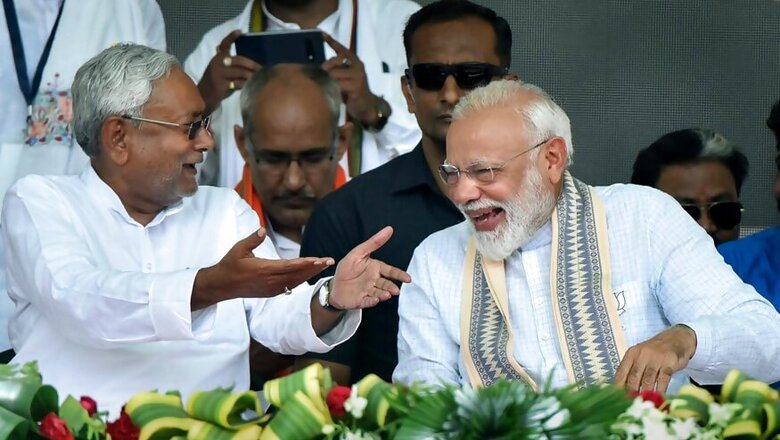
views
Patna: The Jharkhand poll outcome has come in handy for the ruling Janata Dal (U) in Bihar to mount pressure on its main ally – the Bharatiya Janata Party (BJP) – for a bigger share in the number of seats to be fought in the Bihar assembly elections due in October-November this year.
A political storm of sorts has been triggered after party’s former vice-president and election strategist Prashant Kishor pressed for lion’s share of seats in the 243-member Bihar assembly, and floated a formula of 142 and 101 seats (1.40:1 ratio) for the JD (U) and BJP, respectively. As per the formula, both the allies should give equal number of seats to another ally - Lok Janshakti Party (LJP).
Kishor’s formula has led to a war of words between BJP and the JD (U) leaders, and also elicited sharp reaction from a section of JD(U) politicians opposed to him. The most caustic remark came from Deputy Chief Minister Sushil Kumar Modi, who dubbed Kishor as an “entrepreneur doing business in collation and interpretation of election data and coining slogans” for political parties.
“An entrepreneur is always busy in creating markets for his services. This is what exactly Kishor is doing. But such statements only serve the interests of the opposition. The seat-sharing will be decided by Prime Minister Narendra Modi and Chief Minister Nitish Kumar,” Sushil Kumar Modi said. He, however, later offered an olive branch to Kishor, saying, “Let bygones be bygones’.
Some senior JD(U) leaders opposed to Kishor said the party’s top leadership alone would decide the number of seats to be fought in the state polls. “Kishor has not been authorised to speak on such sensitive matters. Both the allies had settled seat-sharing amicably during the last Lok Sabha polls. The matter will be settled cordially once again in the coming state assembly elections,” said RCP Singh, JD (U) leader in the Rajya Sabha.
Though chief minister Nitish Kumar tried to pacify the situation by saying everything was hunky-dory in the National Democratic Alliance (NDA) in Bihar, it is largely presumed in the NDA circles that Kishor has his backing on the issue. On the issue of Citizenship Amendment Act (CAA), Kishor had gone against the party line but Nitish had refused to accept his resignation even though a section of party leaders had vociferously asked for it.
As the war of words ensues, the question left unanswered in the entire debate is as to what would be the formula of seat-sharing among the three NDA allies and whether the vaulting ambitions of some of the BJP and the JD(U) leaders would lead to a mess in the coalition like it happened in 2013, when JD(U) parted company with the BJP over projection of Narendra Modi then as the Prime Ministerial candidate.
Looking into the past, it is clear that the JD(U) has always preferred to play the role of ‘big brother’ and squeezed lion’s share in terms of seats in Lok Sabha elections in 2004 and 2009 as well as in state assembly elections in October 2005 and in 2010. But when Nitish Kumar remains in a tight leash, he settles on equal terms like he did in 2015 assembly polls with the RJD as part of the grand alliance and in 2019 Lok Sabha elections with the BJP as part of the NDA.
In February 2005 assembly elections, the JD(U) had fought on 138 seats and won 55 seats with 14.55 per cent vote share while the BJP contested on 103 seats and won 37 seats with 10.7 per cent vote share. The LJP had fought separately on 178 seats and won 29 seats with 12.62 per cent vote share. Since it was a hung assembly, President Rule was imposed and fresh elections were held in October 2005.
In the October 2005 assembly elections, the JD (U) had contested 138 seats leaving 103 for the BJP. The two parties had friendly contest on two seats. The JD(U) and BJP won 88 and 55 seats and garnered 20.46 per cent votes and 15.65 per cent votes respectively. The NDA formed the government in Bihar after nearly six months of President’s rule.
In 2010 assembly elections, the JD (U) was the ‘big brother’ and had contested 141 seats while the BJP had fought on 102 seats out of 243 seats in the state assembly. The JD(U) won 115 and the BJP won 91 seats with 22.61 per cent and 16.46 per cent votes, respectively.
The performance of both the allies had been better when they fought the polls together. Before the formation of the NDA, the electoral performance of the Samata Party, which later became Janata Dal (U), was not encouraging.
In 1995 assembly polls, the Samata Party had contested 310 seats out of the 324 assembly seats in the then undivided Bihar and won only seven seats with a vote share of 7.1 per cent. The NDA was not in existence then and the BJP had fought separately on 315 assembly seats, garnering 41 seats with a vote share of 13 per cent.
In 2000 assembly elections, their performance improved marginally. The BJP had contested 168 seats and won 67 with a vote share of 14.6 per cent, while the Samata Party had contested 120 seats, winning 34 and garnering 8.7 per cent votes.
The 1996 Lok Sabha election was the first general elections which the Samata Party fought in seat adjustments with the BJP in Bihar. The BJP won 18 seats, while the Samata Party bagged 6 seats out of the 54 Lok Sabha seats in the then undivided Bihar.
In 1998 general elections, the BJP and the Samata Party had become part of the NDA and won 19 and 10 seats, respectively. In the 1999 Lok Sabha polls, the Samata Party had fought the elections on Janata Dal (U) symbol though both the parties had not officially merged by then. The BJP won 23 seats with 23.01 per cent votes and the JD(U) garnered 18 seats with vote share of 20.77 per cent.
The Lok Sabha election in 2004 was held for the first time after bifurcation of Bihar, which retained 40 seats while 14 parliamentary seats went to Jharkhand. The JD(U) and BJP had contested 26 and 14 seats, respectively. While the JD(U) won six seats with a vote share of 22.36 per cent, the BJP secured five seats with vote share of 14.57 per cent.
In the 2009 Lok Sabha elections, the JD (U) had contested 25 seats and the BJP 15 seats. Of these, the JD (U) had won 20 seats with a vote share of 24.04 per cent, while the BJP had won 12 seats with a vote share of 13.93 per cent.
The JD(U), which had walked out of the NDA in 2013, had fought the polls separately during the 2014 Lok Sabha elections. It had contested on 31 Lok Sabha seats and won only two seats with 15.80 per cent votes. The BJP, LJP and Rashtriya Lok Samata Party (RLSP) had fought the polls together as NDA constituents. While the BJP secured 22 seats with 29.40 per cent votes, the LJP won 6 seats with 6.40 per cent votes and the RLSP gained 3 seats with 3 per cent votes.
Taking lessons from the 2014 Lok Sabha poll outcome, the JD(U) chief Nitish Kumar joined hands with RJD-Congress alliance during the 2015 Bihar assembly elections and won 71 seats against 53 by the BJP. He became the chief minister of the grand alliance coalition.
But before the 2019 Lok Sabha polls, the JD(U) returned to the NDA fold and formed the government in Bihar with the support of the BJP after severing ties with the RJD over corruption issue. The JD(U) and BJP had consented on 50:50 formula and fought on 17 seats each leaving six for the LJP. The NDA swept the polls under strong Narendra Modi wave with BJP winning 17 seats, JD(U) 16 and LJP six.
Going by the poll outcomes, it is clear that the JD (U) performed poorly when it fought the polls independently as in 1995 assembly elections and 2014 Lok Sabha elections. For the BJP, the recent Jharkhand poll outcome is a lesson as it would have reached the magic number had it fought with the AJSU Party, which secured nearly 9 per cent votes. If added to the BJP vote share, it surpasses the vote share of the JMM-led alliance.
After the Jharkhand debacle, the BJP should tread carefully and avoid the risk of fighting the polls separately to prevent wastage of votes.
(The author is a senior journalist. Views expressed are personal)











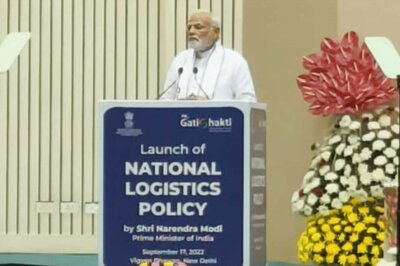



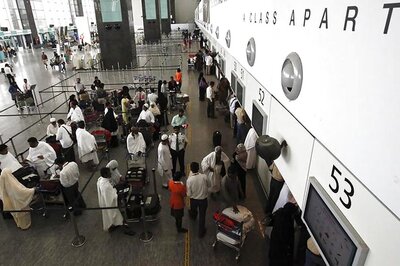
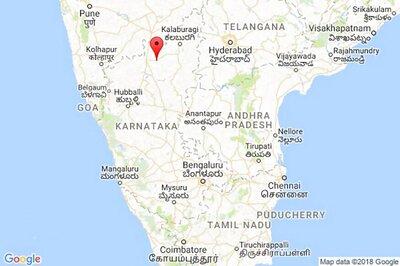
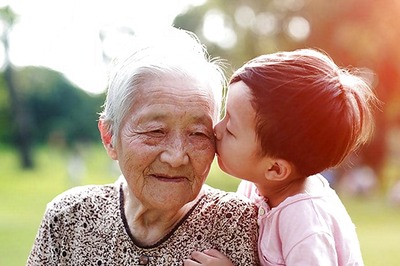
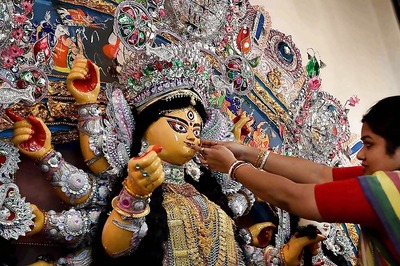
Comments
0 comment